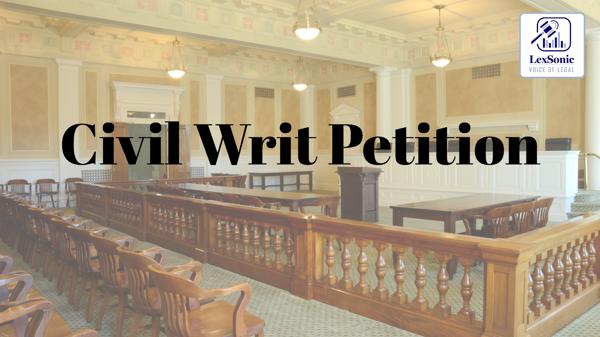Writ Petitions Dismissed: Improper Forum for Challenging Trial Court Order.
17 July 2025
Civil Writ Petition >> Civil & Consumer Law
A batch of writ petitions filed by Mr. A. Ushi Reddy (Party-in-Person), all seeking similar relief, primarily challenging an order dated September 18, 2024, passed by the Junior Civil Judge-cum-Judicial Magistrate of First Class at Chevella, Ranga Reddy district. This impugned order had allowed an application to implead a fourth respondent as defendant No. 2 in a civil suit (O.S.No.688 of 2022) filed by the petitioner for specific performance, permanent injunction, and a declaration of legal heir status.
From the outset, on November 11, 2024, a Division Bench of the High Court observed that these writ petitions, filed under Article 226 of the Constitution of India, were not maintainable for challenging a trial court order. The proper remedy, as clarified by the Court, was to file Civil Revision Petitions under Article 227 of the Constitution of India. The petitioner was repeatedly directed to file an appropriate application to convert these writ petitions into Civil Revision Petitions. This directive was reiterated on November 19, 2024, and was subsequently affirmed by the Hon'ble Supreme Court on March 7, 2025, which dismissed the petitioner's Special Leave Petition, noting it as "needless litigation" and instructing compliance with the High Court's conversion directive.

Despite these clear directions from both the High Court and the Supreme Court, the petitioner chose to file separate Civil Revision Petitions (CRP Nos.1986 to 1991 of 2025) instead of converting the existing writ petitions. Furthermore, on June 27, 2025, during the hearing of these newly filed Civil Revision Petitions, the petitioner's counsel informed the Division Bench that "the cause in these Revision Petitions does not survive for adjudication," and requested permission to pursue remedies in the still-pending batch of writ petitions. Based on this submission, the Civil Revision Petitions were closed.
The present Bench, upon reviewing this history, found that the petitioner consistently failed to comply with the High Court's and Supreme Court's directives to convert the writ petitions. Instead, he engaged in a circuitous legal approach, filing new petitions only to then abandon them in favor of the original, non-maintainable writ petitions.
Given the explicit rulings on maintainability by the High Court (on November 11 and 19, 2024) and the Supreme Court (on March 7, 2025), and the petitioner's own actions regarding the Civil Revision Petitions, the Court concluded that the batch of writ petitions is not maintainable. Consequently, all the writ petitions were dismissed on the grounds of non-maintainability.
